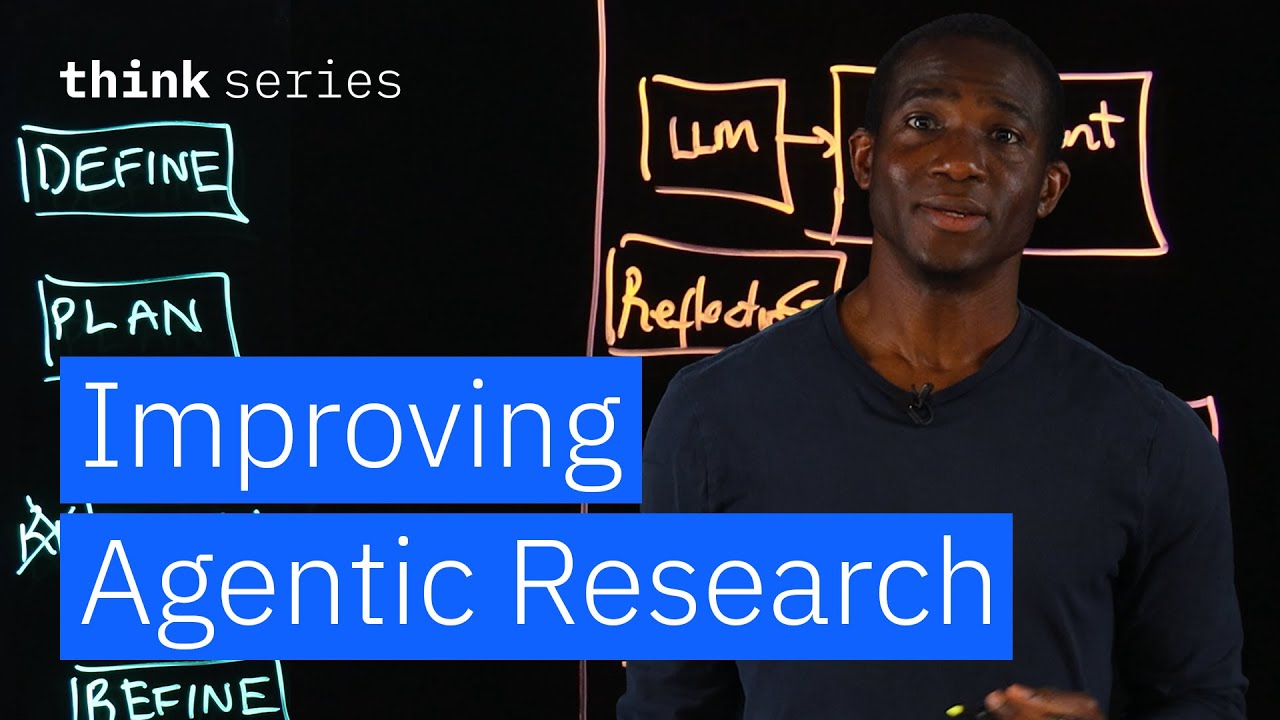The video discusses how search is fundamental to AI research processes and explains the concept of tool calling, where language models access external data sources via defined tools, highlighting its limitations such as hallucinations and maintenance challenges. It introduces the Model Context Protocol (MCP) as a standardized, scalable solution to improve integration, reliability, and efficiency of external tools in AI systems.
The video emphasizes the central role of search in the research process, comparing it to how humans naturally perform research by defining objectives, planning, gathering information, refining, and finally generating responses. It highlights that search is fundamental to AI systems that mimic this process, making its effective implementation crucial. The speaker stresses that understanding how search agents are built today requires revisiting the concept of tool calling, which enables language models (LLMs) to access external data sources.
Tool calling is explained as a method by which LLMs invoke external services such as web APIs, databases, or search engines, since LLMs alone cannot perform searches or access real-time information. Each tool is defined with a name, purpose, and expected inputs, allowing the LLM to send requests to an application that routes these requests to the appropriate service. The retrieved data is then used by the LLM to generate responses, making tool calling a common approach in current AI systems for integrating external knowledge sources.
However, the approach has notable limitations. The speaker points out that LLMs can hallucinate tool names, inventing tools that do not exist, which leads to failures in retrieving relevant data. Additionally, poor tool selection can occur when the LLM chooses the wrong tool for a given query, such as fetching web data when a database search would be more appropriate. This misselection can be exacerbated in systems with multiple tools, increasing the risk of incorrect data retrieval and reducing reliability.
Another challenge discussed is the complexity involved in maintaining these tool integrations. When underlying APIs or services change, the custom applications that define these tools may break, causing the entire search system to fail. This maintenance burden makes it difficult to scale and adapt search capabilities efficiently, especially as external services evolve or are updated, leading to increased development overhead and potential system instability.
To address these issues, the video introduces the Model Context Protocol (MCP), a standardized interface akin to REST for web APIs. MCP simplifies integration by providing a uniform, plug-and-play method for connecting LLMs with external tools and knowledge sources. It involves MCP clients (on the LLM side) and MCP servers (managed by service providers), streamlining communication, reducing complexity, and increasing trustworthiness. Overall, MCP and similar standardized protocols are seen as key to advancing scalable, reliable, and efficient search capabilities in AI research systems.
